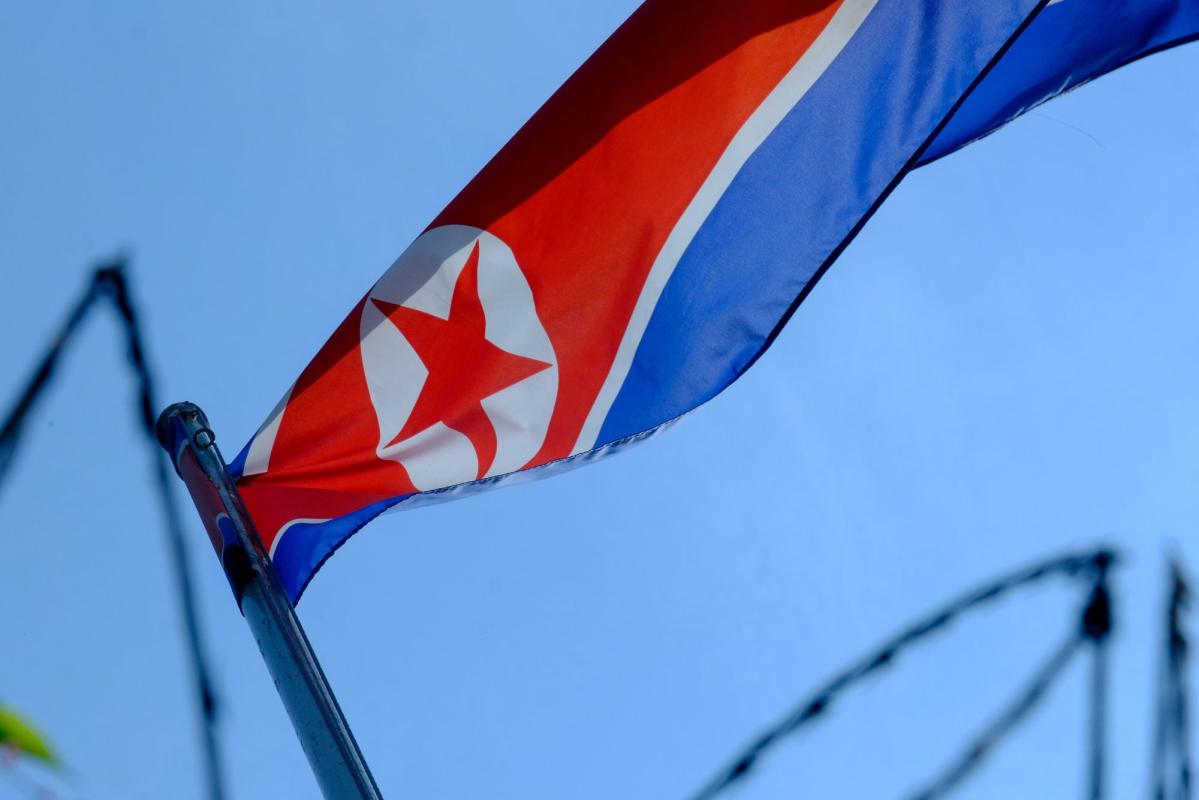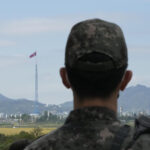
(Bloomberg) — North Korea fired two suspected short-range ballistic missiles toward waters off its east coast Thursday, adding to one of its biggest barrage of tests under leader Kim Jong Un that included its first launch of a rocket over Japan in five years.
Most Read from Bloomberg
The launch came shortly after North Korea condemned the Biden administration for redeploying the USS Ronald Reagan aircraft carrier group to waters east of the peninsula, saying the move escalated tensions. The group first arrived in the South Korean port of Busan in late September and conducted drills that included Japan and South Korea — a move that Pyongyang protested.
“The DPRK is watching the US posing a serious threat to the stability of the situation on the Korean Peninsula and in its vicinity by redeploying the carrier task force in the waters off the Korean Peninsula,” the North Korean Foreign Ministry said in a statement published on state media, referring to the country’s formal name.
South Korea’s Joint Chiefs of Staff said North Korea appeared to have test-fired two short-range missiles from an area near Pyongyang at 6:01 and 6:23 a.m. The first missile reached an altitude of about 100 kms (60 miles) and traveled a distance of 350 kms while the second reached an altitude of 50 kms and flew about 800 kms, Japanese Defense Minister Yasukazu Hamada told reporters.
Biden, Kishida Condemn North Korean Missile Launch Over Japan
The aircraft carrier group was redeployed Wednesday to waters between South Korea and Japan, Yonhap News Agency reported, making a rare U-turn that came as Kim has launched about 10 missiles in less than two weeks.
Japan, South Korea and the US are set for more joint military drills on Thursday, South Korean broadcaster SBS reported. North Korea has bristled for decades against joint exercises with the US, calling them a prelude to an invasion and nuclear war
Further provocations may be coming with US, Japan and South Korea said Pyongyang may be ready to conduct its first nuclear test in five years — with the three pledging a stern and united response if there’s a blast.
The missile that flew over Japan on Tuesday was a suspected Hwasong-12 intermediate-range ballistic missile that traveled a distance of about 4,600 kms, representing the longest-range weapon fired by North Korea since May. It also hearkened back to the autumn of 2017 when Kim’s regime unleashed its largest barrage of long-range rockets and detonated a nuclear bomb.
That prompted then-US President Donald Trump to threaten to “totally destroy” North Korea and led the United Nations to impose some of its toughest sanctions to punish Kim. The North Korean leader has ignored Biden’s calls to return to disarmament talks and has fired off ballistic missiles in defiance of a United Nations ban.
The provocations will likely add to global anxiety over nuclear saber-rattling as Russian President Vladimir Putin alludes to his atomic arsenal while attempting to bolster his struggling invasion of Ukraine. The US’s push to isolate Russia over the war — coupled with increasing tensions between Washington and Beijing — has allowed Kim to strengthen his nuclear deterrent without fear of new UN sanctions.
Russia and China vetoed a US-drafted sanctions resolution against North Korea at the UN Security Council in May and there’s almost no chance of them supporting measures like they did in 2017. China fired its own ballistic missiles over Taiwan in August to protest US House Speaker Nancy Pelosi’s visit to Taipei.
(Updates with details on launch in headline and first paragraph.)
Most Read from Bloomberg Businessweek
©2022 Bloomberg L.P.




